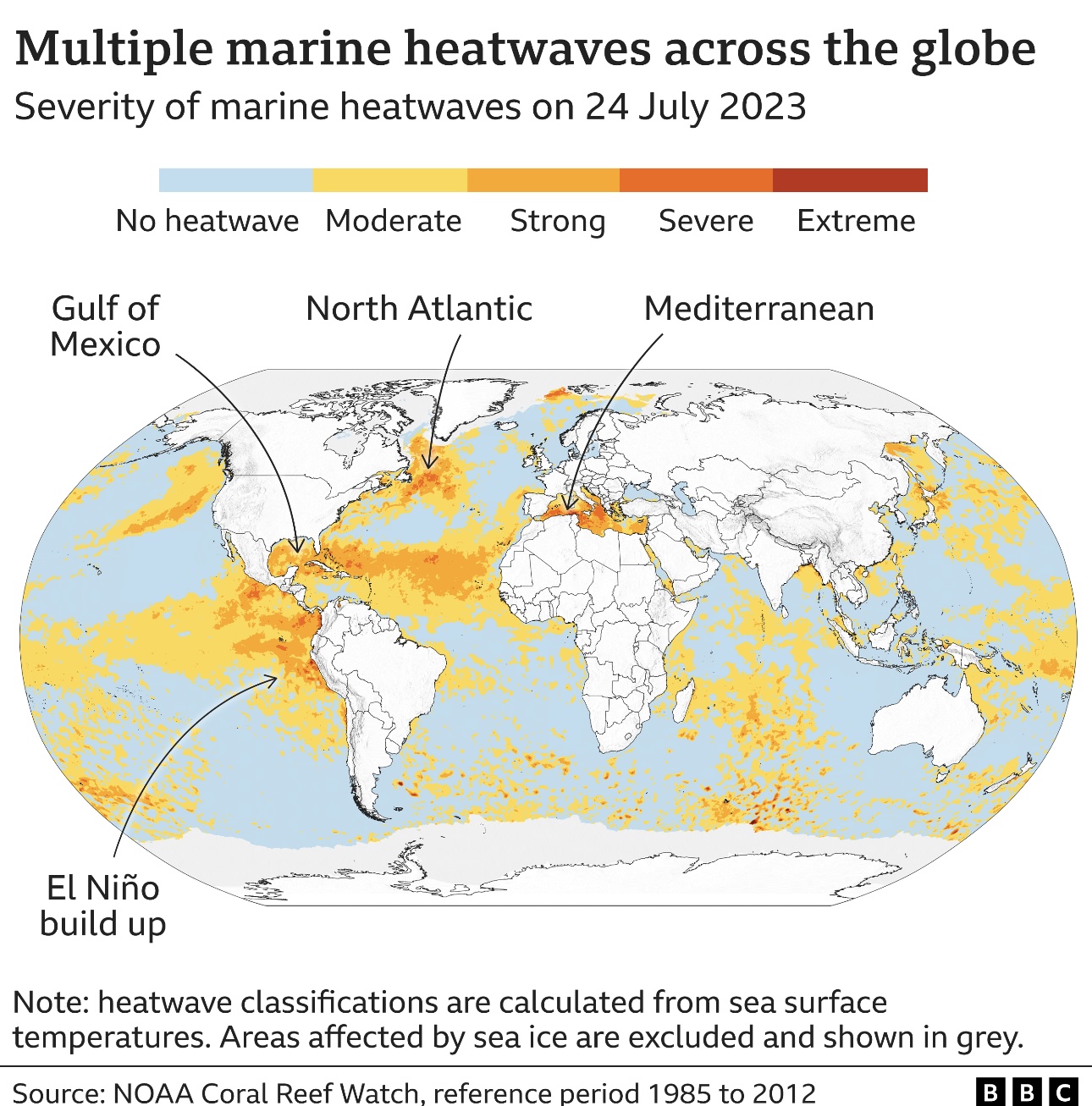Ocean Temperatures Have Reached Highest Recorded Record
Ocean temperatures have reached their highest recorded level, according to the EU’s climate change service Copernicus, with a new record of 20.96°C. This temperature far surpasses the average for this time of year and is indicative of the serious environmental implications of climate change.
Oceans play a vital role in regulating the climate by absorbing heat, producing oxygen, and driving weather patterns. Warmer oceans reduce the ability to absorb carbon dioxide, leading to more greenhouse gas in the atmosphere, accelerating glacier melt, and causing sea levels to rise.
The increase in temperature has a ripple effect on marine life, disturbing species like fish and whales, affecting food chains, and leading to more aggressive behavior in some predatory animals like sharks. This is coupled with widespread coral bleaching and mortality observed in regions like the Gulf of Mexico.
Experts such as Dr. Samantha Burgess are concerned about the timing of this temperature record, as March, not August, should typically be the warmest month for oceans globally. The quick change is alarming to scientists, who are investigating the cause but largely attribute it to climate change and the oceans’ absorption of heat from greenhouse gas emissions.
Another El Niño event has started, though it is still considered weak, and ocean temperatures are expected to rise further. This new temperature record follows several marine heatwaves this year in various locations, including the UK, the North Atlantic, the Mediterranean, and the Gulf of Mexico.
Marine heatwaves have doubled in frequency between 1982 and 2016 and have become more intense and prolonged since the 1980s, as per the Intergovernmental Panel on Climate Change (IPCC). Though oceans take longer to heat up, absorbing 90% of Earth’s warming from greenhouse gas emissions, signs are now emerging that ocean temperatures may be catching up. Scientists are continuing to investigate why temperatures have surged so significantly above previous years.



